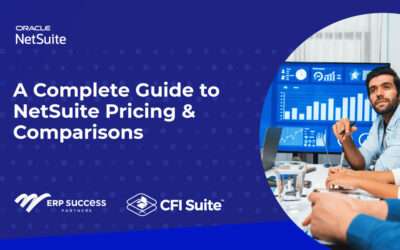In today’s global marketplace, managing multiple suppliers has become a common practice for businesses seeking to optimize their supply chain operations. While this approach offers numerous benefits such as increased flexibility and reduced dependency on a single supplier, it also presents unique challenges. Effectively managing multiple suppliers requires careful planning, coordination, and communication. In this blog post, we will discuss essential tips for successfully managing multiple suppliers in your supply chain. By implementing these strategies, you can enhance efficiency, minimize risks, and foster strong supplier relationships, ultimately driving the success of your supply chain
1. Clear Supplier Selection Criteria
Before engaging multiple suppliers, establish clear selection criteria based on your business requirements, quality standards, pricing, and delivery capabilities. Define key performance indicators (KPIs) that align with your supply chain goals. These criteria will serve as a basis for evaluating and comparing potential suppliers. Consider factors such as supplier reputation, financial stability, production capacity, and compatibility with your business values. By setting clear criteria, you can ensure that your selected suppliers are capable of meeting your specific needs and contributes to the overall success of your supply chain.
2. Communication and Collaboration
Effective communication and collaboration are fundamental to managing multiple suppliers successfully. Establish open lines of communication with your suppliers, maintaining regular contact to discuss expectations, changes in demand, and potential issues. Clearly communicate your supply chain requirements, delivery schedules, and quality standards. Emphasize the importance of proactive communication and encourage suppliers to promptly raise any concerns or potential disruptions. Foster collaboration by sharing relevant information, such as production forecasts, inventory levels, and market insights. By fostering strong communication and collaboration, you can build trust and ensure alignment between your business and your suppliers.
3. Supplier Performance Monitoring
Monitoring supplier performance is critical when managing multiple suppliers. Establish performance metrics and regularly evaluate each supplier against these metrics. Key performance indicators may include on-time delivery, product quality, lead time, responsiveness, and adherence to contractual agreements. Utilize technology solutions, such as supply chain management software, to streamline data collection and analysis. Conduct periodic supplier reviews and provide feedback on performance. Identify areas for improvement and collaborate with suppliers to implement corrective actions when necessary. By monitoring supplier performance closely, you can identify underperforming suppliers early and take proactive steps to address any issues, ensuring the overall efficiency of your supply chain.
4. Supplier Relationship Development
Building strong relationships with your suppliers is crucial for effective supply chain management. Foster a partnership mentality and invest in developing mutually beneficial relationships. Regularly engage with suppliers beyond transactional interactions, seeking opportunities for joint improvement initiatives and innovation. Consider conducting supplier training sessions or workshops to enhance understanding of your business requirements and foster continuous improvement. Recognize and reward outstanding supplier performance to motivate suppliers and reinforce the importance of collaboration. By nurturing strong supplier relationships, you can create a supportive network that aligns with your business objectives and contributes to the success of your supply chain.
5. Risk Management and Contingency Planning
Managing multiple suppliers inherently involves a level of risk. Develop a robust risk management plan and contingency strategies to mitigate potential disruptions. Identify critical dependencies and establish backup plans or alternative sourcing options. Regularly assess the financial stability and reliability of your suppliers to proactively identify any potential risks. Diversify your supplier base geographically to reduce the impact of regional disruptions. Continuously monitor market trends, regulatory changes, and geopolitical factors that may impact your suppliers. By being proactive in risk management and having contingency plans in place, you can minimize the impact of potential disruptions on your supply chain.
6. Incorporating Cloud Software
When it comes to managing multiple suppliers in your supply chain, leveraging cloud-based software solutions can significantly streamline and enhance your operations. NetSuite, a comprehensive ERP system, offers robust functionalities specifically designed for supplier management. With NetSuite, you can centralize supplier information, track performance metrics, and automate key processes, all within a cloud-based environment accessible from anywhere. The software provides real-time visibility into supplier data, including purchase orders, inventory levels, and delivery schedules, enabling effective collaboration and decision-making. Additionally, NetSuite’s integrated platform allows for seamless communication and data sharing between your business and suppliers, fostering transparency and strengthening supplier relationships. By utilizing cloud software like NetSuite, you can maximize efficiency, improve supplier management, and ultimately optimize your supply chain’s performance.
Managing multiple suppliers in your supply chain requires careful planning, effective communication, performance monitoring, relationship building, and risk management. By implementing these strategies and leveraging cloud-based solutions like NetSuite, you can enhance supplier management, streamline operations, and drive the success of your supply chain. Embrace the opportunities presented by managing multiple suppliers, and with the right approach, you can create a resilient and efficient supply chain that supports your business goals.
Explore the power of effective supplier management by implementing the tips and leveraging cloud software like NetSuite. Strengthen your supply chain, enhance collaboration with suppliers, and position your business for success in today’s competitive marketplace. Let’s discuss how NetSuite can streamline your Supply Chain.






